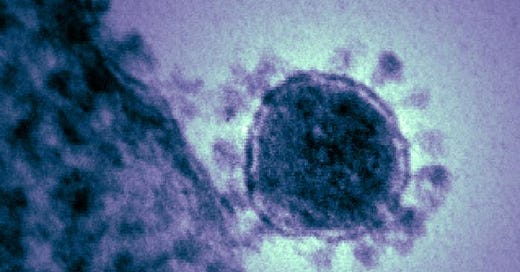Middle East respiratory syndrome coronavirus cluster in Saudi Arabia
Since the beginning of the year, a total of four cases and two deaths have been reported from the Kingdom of Saudi Arabia
The Ministry of Health (MoH) of the Kingdom of Saudi Arabia (KSA) reported three cases of Middle East respiratory syndrome coronavirus (MERS-CoV), including one death from April 10 to April 17.
All three cases were reported in Riyadh and linked to the same health-care facility.
According to the World Health Organization:
The index case is a 56-year-old male school teacher, and a Saudi national residing in Riyadh. On 29 March, he developed a fever, cough, runny nose and body aches. He sought medical care at the emergency room (ER) of a hospital in Riyadh on 4 April, where case number three was also being treated. He was then admitted to a ward on 4 April, where he shared a room with case number two. On 6 April, he was transferred to Intensive Care Unit (ICU) isolation and intubated, was tested by reverse-transcriptase polymerase chain reaction (RT-PCR), and was confirmed positive for MERS-CoV. The case had underlying health conditions, including hypertension and chronic renal failure requiring hemodialysis . There was no clear history of exposure to typical MERS-CoV risk factors. Close contacts, including 20 health and care workers and seven household members, were followed up, which promptly identified the two secondary cases. Investigations, including determining the source of the infection, are still ongoing. The index case died on 7 April.
The second case is a retired 60-year-old male Saudi national, residing in Riyadh. He was admitted to the ICU at the same hospital in Riyadh on 8 March 2024. On 31 March, he was transferred to a ward, where he subsequently shared a room with the index case on 4 April. The case developed a fever on 6 April and tested positive for MERS-CoV by RT-PCR on 8 April. He has underlying health conditions including heart disease and being a smoker. With no history of exposure to camels, the case is suspected to be a secondary healthcare-associated case due to contact with the index case, with investigations ongoing. The follow-up of 13 health and care workers and one patient has been completed, with no additional cases identified to date.
The third case is a 60-year-old male, retired military personnel and Saudi national, residing in Riyadh. On 4 April, he went to the ER of the same hospital in Riyadh, where the index case was also admitted. He was then admitted to the ward (different to the one that the index case and case number two shared) on 5 April. He developed shortness of breath on 10 April and was transferred to the ICU on 15 April. He tested positive for MERS-CoV by RT-PCR on the same day. He has underlying health conditions including chronic renal failure requiring hemodialysis, malignancy, and liver disease. No history of exposure to camels was identified and, like the second case, he is suspected to be a secondary healthcare-associated case due to contact with the index case. A follow-up of 14 health care workers is ongoing, with no additional cases identified to date.
As of 21 April 2024, the second and third cases remained in the ICU and were intubated on 9 April and 18 April, respectively.
Since the beginning of the year, a total of four cases and two deaths have been reported from the Kingdom of Saudi Arabia.
Since the first report of MERS-CoV case in KSA in 2012 until 21 April 2024, a total of 2204 human cases and 860 deaths have been reported. Overall, a total of 2613 MERS-CoV cases and 941 deaths have been reported from 27 countries.





